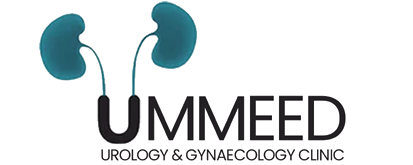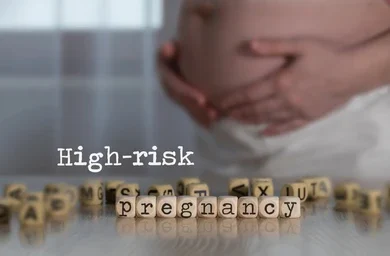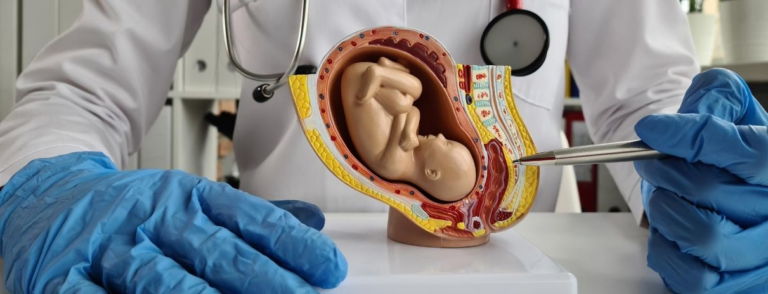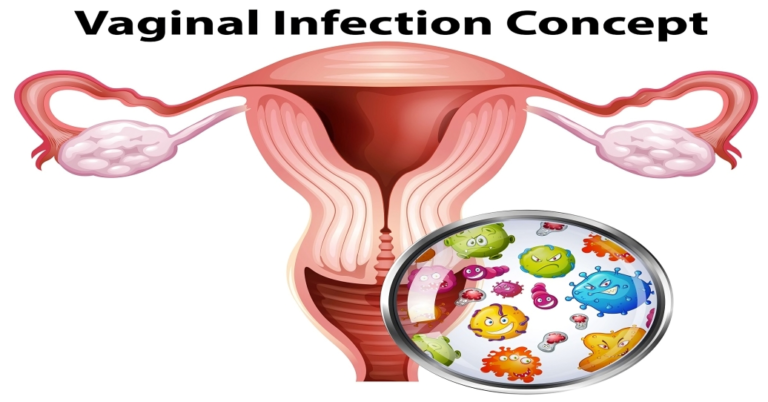Genetic Counseling And Testing In High-Risk Pregnancies
Bringing a child into the world is a journey filled with anticipation and joy, but for some expecting parents, the path is fraught with uncertainty and complexity due to high-risk pregnancies. In such cases, genetic counseling and testing emerge as invaluable tools, offering insights into potential risks and guiding informed decision-making. This article delves into the pivotal role of genetic counseling and testing in high-risk pregnancies, illuminating its significance in navigating the intricate landscape of prenatal care.”Best Pregnancy Doctor in Rohini”
To Know More About It Please Click Here
Understanding the Landscape: What Constitutes a High-Risk Pregnancy?
Before delving into the nuances of genetic counseling and testing, it’s essential to grasp the concept of high-risk pregnancies. Various factors contribute to categorizing a pregnancy as high risk, including maternal age, pre-existing medical conditions, previous pregnancy complications, and genetic predispositions. These pregnancies demand heightened vigilance and specialized care to mitigate risks and optimize outcomes for both the mother and the baby.
The Role of Genetic Counseling: Empowering Informed Decision-Making
Genetic counseling serves as a cornerstone in the realm of high-risk pregnancies, providing expectant parents with comprehensive information and support regarding the genetic aspects of their pregnancy. A genetic counselor, trained in both genetics and counseling, facilitates discussions on familial and hereditary conditions, assesses individual risk factors, and elucidates available testing options.
Navigating the Testing Terrain: Tools and Techniques
Genetic testing in high-risk pregnancies encompasses a spectrum of techniques aimed at evaluating the genetic makeup of the fetus and assessing potential risks. These may include prenatal screening tests, such as non-invasive prenatal testing (NIPT), which analyzes cell-free fetal DNA in the maternal bloodstream to screen for chromosomal abnormalities like Down syndrome, trisomy 18, and trisomy 13 with high accuracy.
In cases where screening tests indicate elevated risk or specific concerns arise, diagnostic procedures like chorionic villus sampling (CVS) or amniocentesis may be recommended. These invasive techniques involve sampling fetal genetic material directly from the placenta (CVS) or amniotic fluid (amniocentesis) to provide a definitive diagnosis of genetic disorders and chromosomal abnormalities.
Empowering Decision-Making: The Ethical and Emotional Dimensions
While genetic counseling and testing offer invaluable insights, they also raise complex ethical and emotional considerations for expectant parents. The results of these tests may herald relief, confirm a low-risk status, or introduce challenging decisions regarding pregnancy management and future planning in the event of an adverse diagnosis.
Genetic counselors play a pivotal role in navigating these intricate realms, offering emotional support, clarifying uncertainties, and facilitating open, honest discussions about the potential implications of test results. Through compassionate guidance, they empower parents to make informed decisions aligned with their values, preferences, and individual circumstances.
Looking Ahead: Advances and Innovations
The landscape of genetic counseling and testing in high-risk pregnancies continues to evolve, driven by advances in technology and scientific understanding. Emerging techniques, such as whole-genome sequencing and expanded carrier screening, hold promise for enhanced precision, sensitivity, and accessibility in identifying genetic risks.
Moreover, initiatives aimed at integrating genetic counseling into routine prenatal care pathways seek to broaden access and ensure equitable distribution of resources, particularly for underserved communities facing disparities in healthcare access and genetic literacy.
Conclusion: Navigating Complexity with Compassion
In the realm of high-risk pregnancies, genetic counseling and testing emerge as indispensable allies, offering clarity, empowerment, and support amidst uncertainty. By fostering open dialogue, providing personalized guidance, and embracing the multidimensional aspects of prenatal care, genetic counselors serve as beacons of hope, navigating families through the complexities of genetic risk with compassion and care. In the journey towards parenthood, their presence illuminates the path, empowering expectant parents to make informed decisions and embrace the future with resilience and optimism.”Best Pregnancy Doctor in Rohini”
Also, Follow us on Instagram







